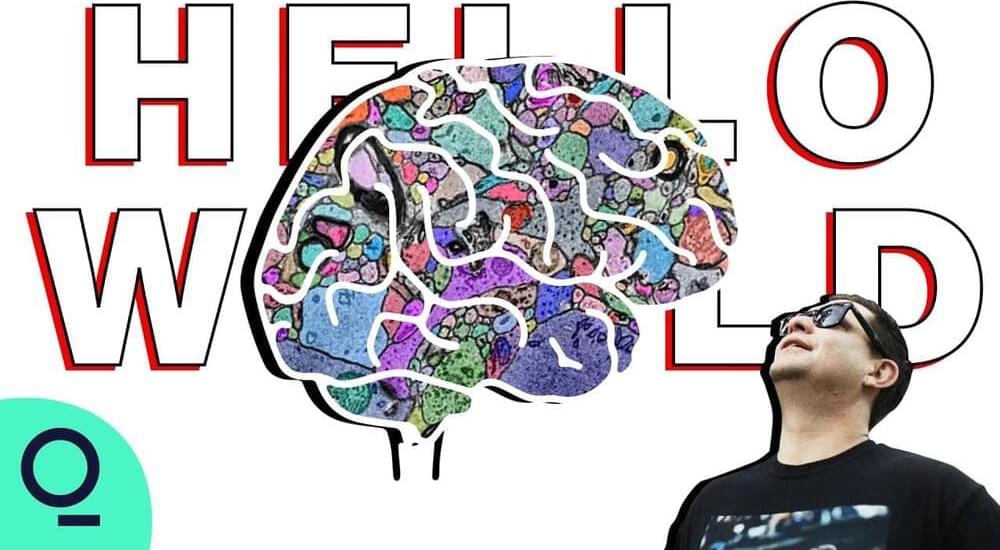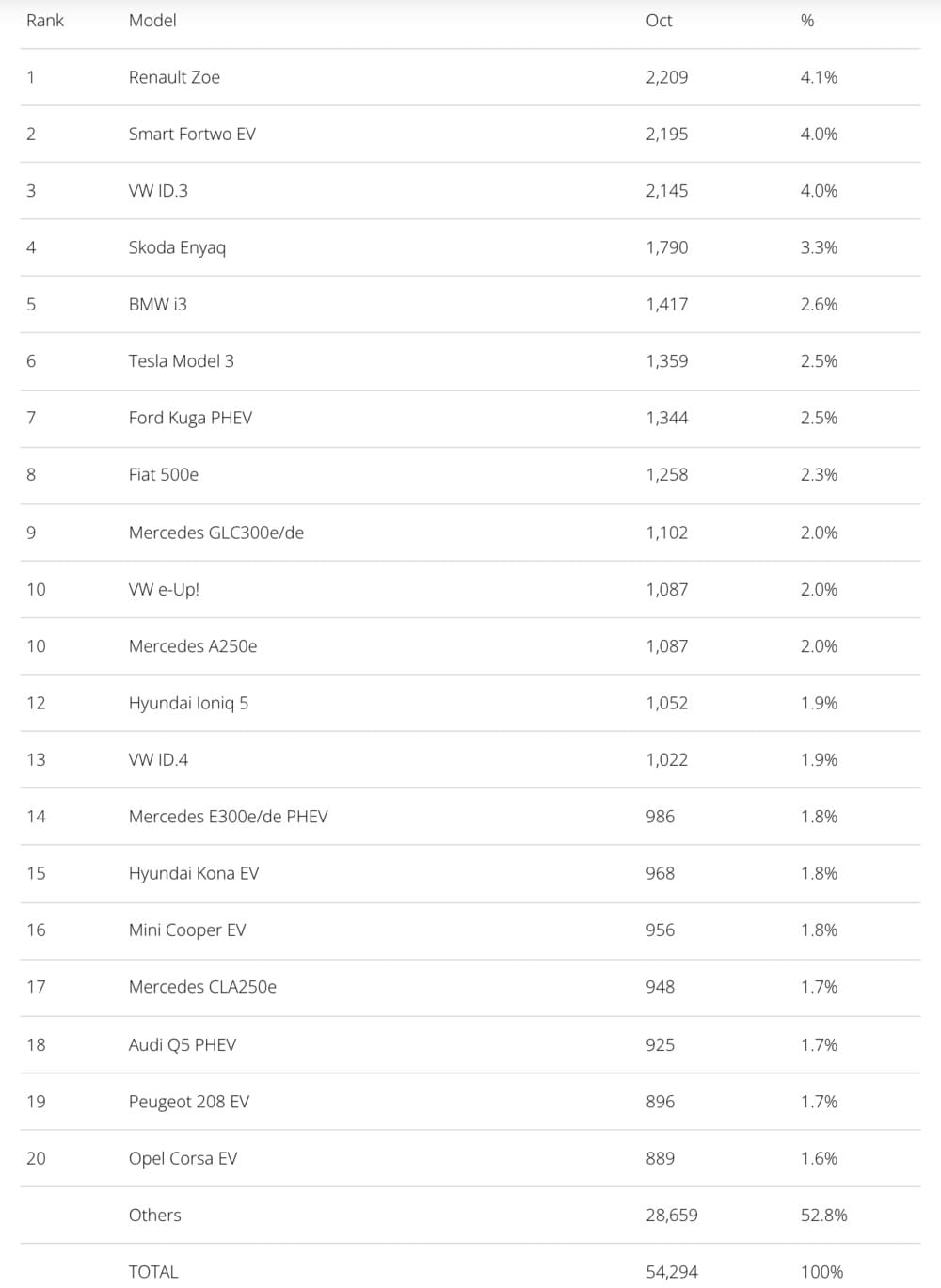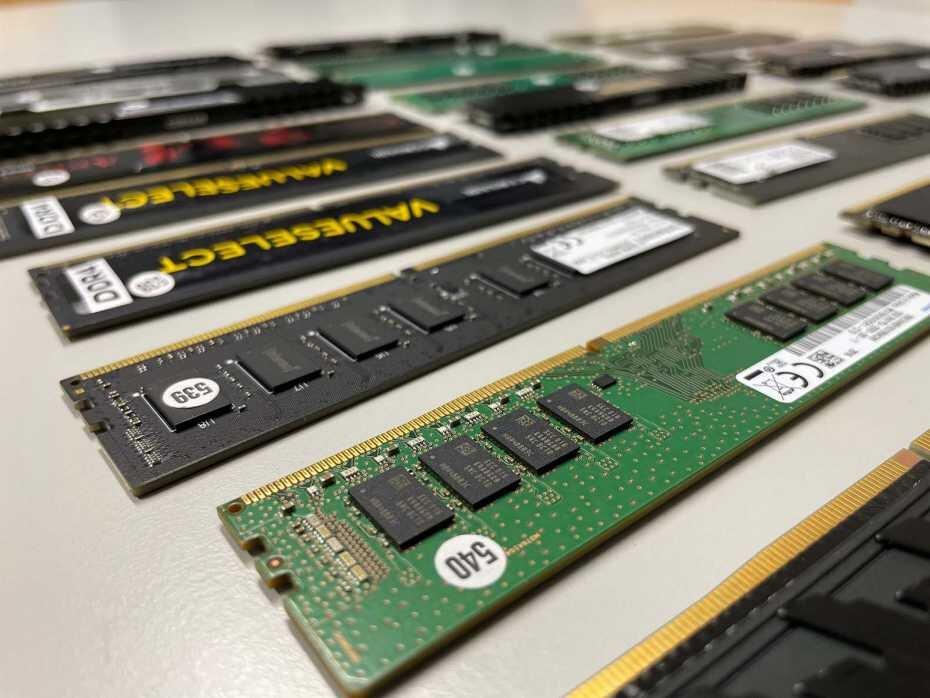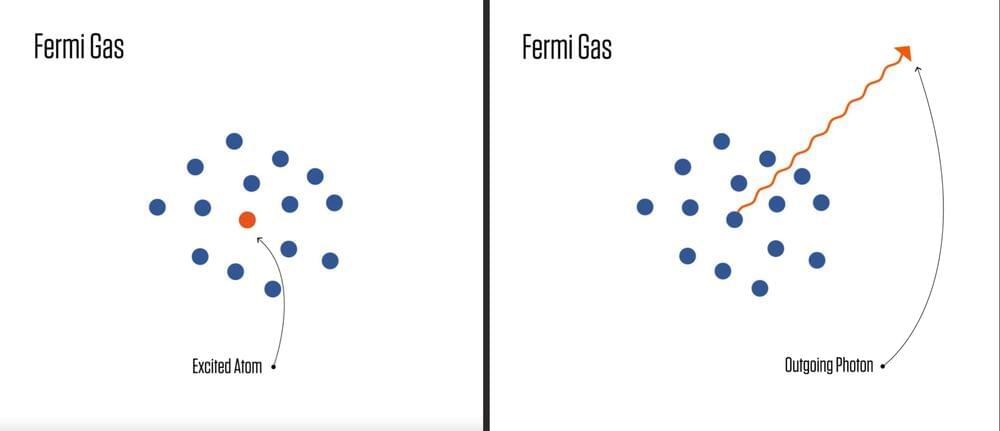If we’re all living in a simulation, as some have suggested, it would be a good, albeit risky, way to find out for sure.
Page 4753
Nov 19, 2021
Why This Lab Is Slicing Human Brains Into Little Pieces
Posted by Dan Breeden in categories: information science, robotics/AI

There’s a multibillion-dollar race going on to build the first complete map of the brain, something scientists are calling the “connectome.” It involves slicing the brain into thousands of pieces, and then digitally stitching them back together using a powerful AI algorithm.
Presented by Polestar.
Continue reading “Why This Lab Is Slicing Human Brains Into Little Pieces” »
Nov 19, 2021
“Deepfaking the Mind” Could Improve Brain-Computer Interfaces for People with Disabilities
Posted by Nicholi Avery in categories: computing, neuroscience
The Neuro-Network.
“𝘿𝙚𝙚𝙥𝙛𝙖𝙠𝙞𝙣𝙜 𝙩𝙝𝙚 𝙈𝙞𝙣𝙙” 𝘾𝙤𝙪𝙡𝙙 𝙄𝙢𝙥𝙧𝙤𝙫𝙚 𝘽𝙧𝙖𝙞𝙣-𝘾𝙤𝙢𝙥𝙪𝙩𝙚𝙧 𝙄𝙣𝙩𝙚𝙧𝙛𝙖𝙘𝙚𝙨 𝙛𝙤𝙧 𝙋𝙚𝙤𝙥𝙡𝙚 𝐰𝐢𝐭𝐡 𝐃𝐢𝐬𝐚𝐛𝐢𝐥𝐢𝐭𝐢𝐞𝐬
𝙎𝙮𝙣𝙩𝙝𝙚𝙩𝙞𝙘 𝙣𝙚𝙪𝙧𝙤𝙡𝙤𝙜𝙞𝙘𝙖𝙡 𝙙𝙖𝙩𝙖 𝙘𝙧𝙚𝙖𝙩𝙚𝙙 𝙪𝙨𝙞𝙣𝙜 𝙜𝙚𝙣𝙚𝙧𝙖𝙩𝙞𝙫𝙚 𝙖𝙙𝙫𝙚𝙧𝙨𝙖𝙧𝙞𝙖𝙡 𝙣𝙚𝙩𝙬… See more.
Nov 19, 2021
It’s official by now: A Second Earth had been discovered just next door (video)
Posted by Claudio Soprano in category: transportation

The presence of a SECOND Earth in the Proxima Centauri […].
© All Right Reserved Auto DailyZ 2021.
Continue reading “It’s official by now: A Second Earth had been discovered just next door (video)” »
Nov 19, 2021
30% Plugin Vehicle Share In German Auto Market!
Posted by Shubham Ghosh Roy in category: transportation
The German plugin vehicle market scored over 54,000 registrations last month, a 12% improvement year over year (YoY), an impressive performance considering the overall market crashed 35%. As a result, last month’s plugin share ended at 30% (17% BEV).
The yearly plugin vehicle share of the market stayed at 24% (12% BEV), an impressive result, especially if we look back to a year ago when the YTD market share was at 10%.
Interestingly, the current disruption is not only hurting gasoline and diesel sales, but is also starting to hit PHEVs, which were down 5% YoY in October. In the same period, BEVs grew 32%, allowing pure electrics to represent 56% of plugin vehicle sales last month, and flipping the YTD numbers to the BEV side (267,000 BEVs vs. 265,000 PHEVs).
Nov 19, 2021
Meet the Gen Z founders who created a music app to help combat pandemic-induced anxiety and depression
Posted by Shubham Ghosh Roy in categories: biotech/medical, business, media & arts, neuroscience
Name: Travis Chen and Brian Femminella
Age: 22 and 21
Location: Seattle, Washington; Los Angeles, California.
Nov 19, 2021
“Most valuable” AI unicorn SenseTime gets Hong Kong IPO — sources
Posted by Krys Hyff in categories: robotics/AI, surveillance

Whoever controls AI controls the world
“Most Valuable AI unicorn” goes for IPO.
Continue reading “‘Most valuable’ AI unicorn SenseTime gets Hong Kong IPO — sources” »
Nov 19, 2021
Why is No One Talking About “Informed Consent?”
Posted by Chuck Black in categories: biotech/medical, government, law

Informed consent not something we hear a lot about these days, which is kind of odd, given all the drugs our government currently insists that we take and how often those very same legal concepts are invoked for aboriginal rights and sexual assault cases.
“Informed consent” is a well understood legal doctrine in healthcare, requiring the healthcare provider (traditionally a doctor) to educate patients about the risks, benefits, and alternatives of any given recommended procedure or intervention, allowing the patient to make informed and “voluntary” decisions about whether to undergo the procedure.
Continue reading “Why is No One Talking About ‘Informed Consent?’” »
Nov 19, 2021
Serious security vulnerabilities in DRAM memory devices
Posted by Saúl Morales Rodriguéz in categories: cybercrime/malcode, mobile phones
Researchers at ETH Zurich have discovered major vulnerabilities in DRAM memory devices, which are widely used in computers, tablets and smartphones. The vulnerabilities have now been published together with the National Cyber Security Centre, which for the first time has assigned an identification number for it.
When browsing the internet on a laptop computer or writing messages on a smartphone, we all like to think that we are reasonably safe from hacker attacks as long as we have installed the latest software updates and anti-virus software. But what if the problem lies not with the software, but with the hardware? A team of researchers led by Kaveh Razavi at ETH Zurich, together with colleagues at the Vrije Universiteit Amsterdam and Qualcomm Technologies, have recently discovered fundamental vulnerabilities affecting the memory component called DRAM at the heart of all modern computer systems.
The results of their research have now been accepted for publication at a flagship IT security conference, and the Swiss National Cyber Security Centre (NCSC) has issued a Common Vulnerabilities and Exposures (CVE) number. This is the first time that a CVE identification has been issued by the NCSC in Switzerland (see box below). On a scale of 0 to 10, the severity of the vulnerability has been rated as 9.
Nov 19, 2021
Energizer atoms: Physicists find new way to keep atoms excited
Posted by Saúl Morales Rodriguéz in categories: particle physics, quantum physics
JILA researchers have tricked nature by tuning a dense quantum gas of atoms to make a congested “Fermi sea,” thus keeping atoms in a high-energy state, or excited, for about 10% longer than usual by delaying their normal return to the lowest-energy state. The technique might be used to improve quantum communication networks and atomic clocks.
Quantum systems such as atoms that are excited above their resting state naturally calm down, or decay, by releasing light in quantized portions called photons. This common process is evident in the glow of fireflies and emission from LEDs. The rate of decay can be engineered by modifying the environment or the internal properties of the atoms. Previous research has modified the electromagnetic environment; the new work focuses on the atoms.
The new JILA method relies on a rule of the quantum world known as the Pauli exclusion principle, which says identical fermions (a category of particles) can’t share the same quantum states at the same time. Therefore, if enough fermions are in a crowd—creating a Fermi sea—an excited fermion might not be able to fling out a photon as usual, because it would need to then recoil. That recoil could land it in the same quantum state of motion as one of its neighbors, which is forbidden due to a mechanism called Pauli blocking.














